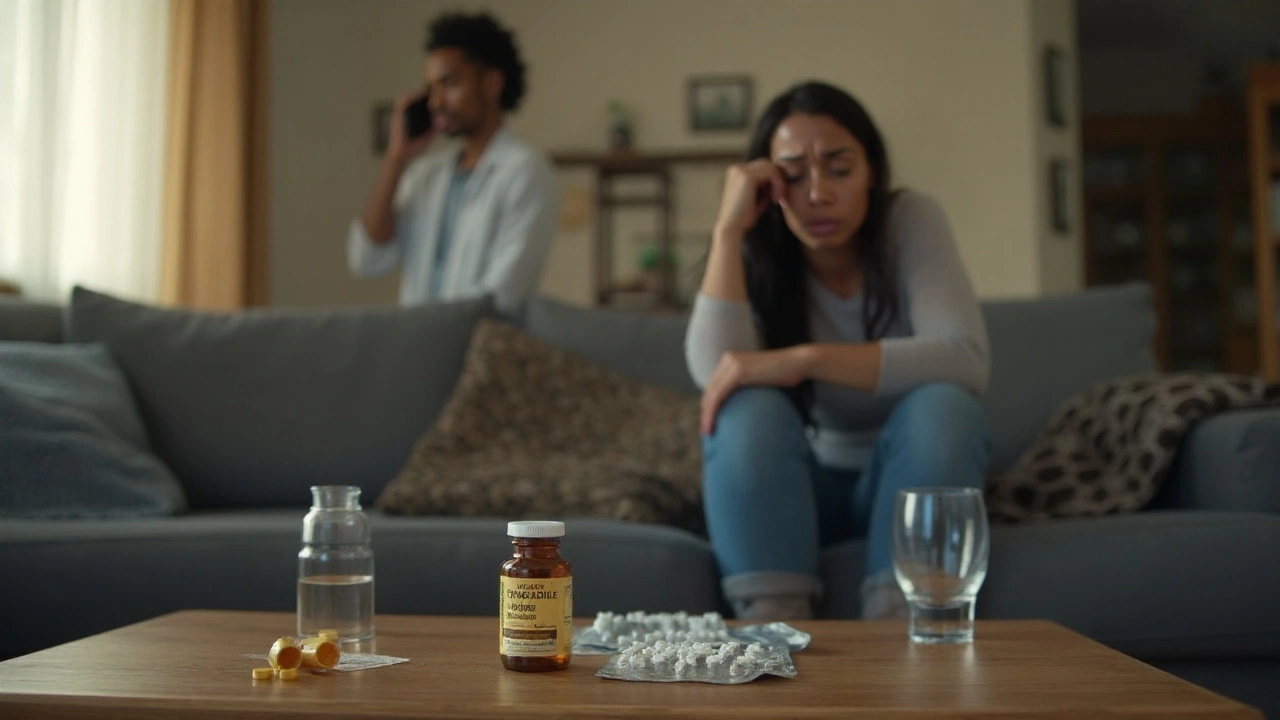Ornidazole Overdose: What Happens and How to React
If you or someone you know has taken too much ornidazole, you need to act fast. Ornidazole is an anti‑protozoal drug often used for infections like giardiasis and amoebiasis. While therapeutic doses are safe, an overdose can cause serious problems ranging from nausea to severe organ damage. Knowing the warning signs and the right actions can make a big difference.
Typical Signs of an Ornidazole Overdose
Most people experience stomach upset first – think vomiting, abdominal pain, and diarrhea. Headaches, dizziness, and a feeling of extreme fatigue may follow. In higher doses, you might notice a metallic taste, blurred vision, or ringing in the ears. Rarely, the heart rhythm can become irregular, and some users report seizures. If any of these symptoms appear after taking more than the prescribed amount, treat it as an emergency.
Immediate Steps to Take
Call your local emergency number right away. Tell the operator you suspect an ornidazole overdose and give them the amount taken, if known. While waiting for help, do not induce vomiting unless a medical professional tells you to. If the person is conscious and can swallow, give them a small amount of water to dilute the drug in the stomach. Keep them lying flat with their feet slightly raised to maintain blood flow to vital organs.
Medical teams usually start with activated charcoal to bind the drug in the gut. They may also run blood tests to check liver and kidney function, because these organs handle most of the drug’s breakdown. Intravenous fluids help prevent dehydration and support blood pressure. In severe cases, dialysis might be considered to speed up removal of the toxin.
After the acute phase, doctors will monitor for delayed effects. Ornidazole can affect the nervous system, so watch for ongoing confusion, tremors, or persistent numbness. Liver enzymes may stay elevated for a few days, indicating stress on the liver. Follow‑up appointments are essential to ensure the body recovers fully.
Prevention is simple: always follow the prescription label, double‑check the dose, and store the medication out of reach of children. If you’re unsure about the right amount, ask your pharmacist or doctor before taking another pill.
For people who have taken ornidazole regularly, it’s worth discussing any side effects with a healthcare provider. Sometimes, a lower dose or an alternative medication can reduce the risk of accidental overdose.
Remember, the key to handling an overdose is speed. Quick recognition of symptoms, calling emergency services, and providing accurate information can save lives. Keep this guide handy in your medicine cabinet for peace of mind.
-
Ornidazole Overdose: Symptoms, What To Do, and Treatment Guide
Clear, practical guide to spotting ornidazole overdose, what to do right now, and how doctors treat it. Includes symptoms, timelines, risks, and prevention tips.
